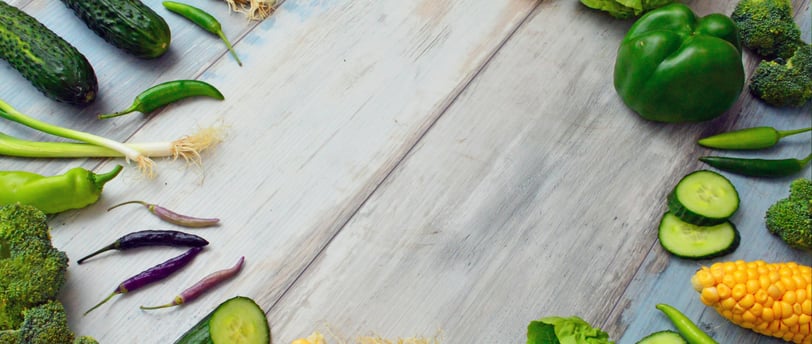Organic Farming: Why It's Critical for Us and the Environment
2/22/20243 min read


Introduction
Organic farming stands as a beacon of sustainable agriculture in a world grappling with the challenges of climate change, environmental degradation, and food insecurity. This comprehensive guide explores the multifaceted benefits of organic farming, examining its profound impact on soil health, biodiversity conservation, food quality, and community resilience. By delving into the intricacies of organic farming practices and their far-reaching implications, we gain a deeper appreciation for the vital role organic agriculture plays in nurturing both human well-being and planetary health.
Promotes Soil Health and Fertility:
Organic farming practices form the cornerstone of regenerative agriculture, prioritizing soil health and fertility through holistic management techniques. By eschewing synthetic fertilizers and chemical pesticides in favor of natural inputs and biological processes, organic farmers cultivate soil ecosystems teeming with life and vitality. Through the implementation of crop rotations, cover cropping, and composting, organic farmers replenish soil organic matter, enhance nutrient cycling, and foster beneficial microbial communities. Research published in the Journal of Applied Ecology underscores the transformative impact of organic farming on soil health, revealing a 15-28% increase in soil organic matter content compared to conventional farming systems. Furthermore, healthy soils act as a formidable carbon sink, sequestering atmospheric carbon dioxide and mitigating the adverse effects of climate change. According to the Rodale Institute, organic farming practices have the potential to sequester up to 3,500 pounds of carbon per acre annually, offering a promising solution to combat global warming.
Protects Biodiversity and Ecosystem Services:
The embrace of organic farming principles heralds a renaissance of biodiversity conservation on agricultural landscapes worldwide. Organic farms serve as sanctuaries for a diverse array of plant and animal species, providing habitat and sustenance for beneficial insects, pollinators, and soil organisms. A meta-analysis published in Science Advances reveals the profound impact of organic farming on biodiversity, reporting a 30% increase in species richness and a 50% increase in abundance across various taxa compared to conventional farming systems. The rich tapestry of life found on organic farms enhances ecosystem services such as pest control, pollination, and soil fertility, bolstering crop yields and resilience in the face of environmental stressors. As stewards of the land, organic farmers play a pivotal role in preserving and restoring the web of life that sustains us all.
Reduces Chemical Exposure and Environmental Pollution:
Central to the ethos of organic farming is the commitment to minimize chemical inputs and mitigate environmental pollution. By prohibiting the use of synthetic pesticides, herbicides, and fertilizers, organic farming systems reduce chemical residues in soil, water, and food. A comprehensive analysis by the Environmental Working Group reveals startling disparities in pesticide residues between conventional and organic produce, with 70% of conventionally grown samples containing detectable residues compared to only 30% of organic samples. This stark contrast underscores the importance of choosing organic options to minimize exposure to harmful chemicals and safeguard human health. Furthermore, organic farming practices promote soil and water conservation, reduce greenhouse gas emissions, and mitigate the adverse impacts of agricultural runoff on aquatic ecosystems. By embracing a chemical-free approach to farming, organic producers pave the way for a cleaner, healthier environment for future generations.
Improves Food Quality and Nutrition:
The transition to organic farming yields bountiful rewards for both consumers and growers alike, elevating food quality and nutritional value to new heights. Organic produce, free from synthetic pesticides and genetically modified organisms (GMOs), offers a safer and healthier alternative to conventionally grown counterparts. A meta-analysis published in the British Journal of Nutrition demonstrates the nutritional superiority of organic crops, with higher levels of antioxidants, vitamins, and minerals compared to conventionally grown varieties. Furthermore, organic dairy and meat products boast higher levels of beneficial nutrients such as omega-3 fatty acids, owing to pasture-based feeding and organic management practices. By nourishing our bodies with organic foods, we not only support our own health and well-being but also champion sustainable farming practices that prioritize ecological integrity and ethical stewardship.
Supports Sustainable Farming Communities:
At the heart of organic farming lies a commitment to building resilient and sustainable farming communities rooted in principles of equity, fairness, and social responsibility. Organic agriculture fosters local food systems, strengthens rural economies, and promotes food sovereignty by empowering farmers and consumers alike. According to the Organic Trade Association, organic farming creates more jobs per acre than conventional agriculture and contributes to local economies through direct sales, agri-tourism, and value-added products. Moreover, organic certification provides farmers with premium prices and market access, incentivizing sustainable farming practices and rewarding environmental stewardship. By choosing organic products, consumers signal their support for ethical farming practices and contribute to the vitality and resilience of farming communities worldwide.
Conclusion:
In conclusion, organic farming represents a beacon of hope and resilience in an increasingly uncertain world, offering a pathway to sustainable agriculture that nourishes both people and the planet. By prioritizing soil health, biodiversity conservation, and ecological integrity, organic farming practices pave the way for a brighter and more sustainable future for generations to come. As stewards of the land, we have a profound responsibility to embrace organic principles, advocate for positive change, and support farmers who are committed to nurturing healthy, resilient ecosystems. Together, let us cultivate a world where organic farming thrives, and the fruits of our labor sustain us in body, mind, and spirit.
